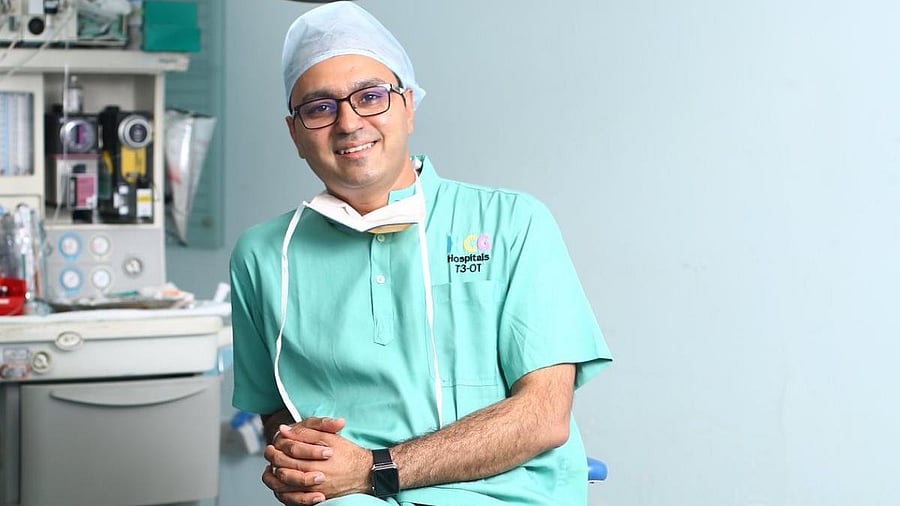
Dr Vishal Rao.
Credit: DH Photo
Covid-19 cases are on the rise in Kerala and Karnataka is taking all precautions, given the situation in the neighbouring state. However, there are doubts and questions among the public regarding the situation on the ground and whether there is a need for concern.
Dr Vishal Rao, Bengaluru-based head and neck oncologist, and formerly part of the Covid Genomic Surveillance committee which reported to task force, spoke to DH's Anupama Ramakrishnan on the new variant and how the situation is likely to pan out.
How would you look at the current Covid-19 outbreak in Kerala and how do you evaluate the situation?
We know that the virus has been constantly evolving and this outbreak has not come as any surprise. Early on, there was the XBB strain, then the BA2.86 and now it’s the JN.1. What’s concerning is that this virus won’t stop its evolution. Globally, the worry has been if it evolves to a deadlier variant, which like Delta had the power to penetrate the lungs, it may be a global concern. As far as Omicron is concerned, we were particularly lucky as the variant lacked the TMPRSS2 pathway which did not let it habitat lungs. And of course, vaccines gave us partial immunity.
How prepared should Karnataka and the rest of the states in India be?
The State Health Department and BT together with IISc have been working towards active surveillance of wastewater, clinical monitoring, and genomic surveillance. The pandemic preparedness centres are also among the top priorities they have taken up. With winter setting in and many other viruses around that give the flu-like symptoms, it is imperative to exercise caution. Additionally, we are entering into the festive holiday season which would increase socialisation. What stands to be closely monitored now is whether the increased socialisation will lead to an increase in hospitalisation or illness.
What would you advise the healthcare workers and the public in general?
We are far from a new upgraded version of the vaccine, and the virus seems to move much faster in its evolution. At this juncture, we are back to the old rules of this game with the most important emphasis on indoor ventilation, early symptoms detection, and genomic surveillance.
How do you think the situation will pan out?
JN.1 is a descendant of the Omicron subvariant BA.2.86, also known as 'Pirola'. It was first detected in the US in September 2023.
Currently, there is no clear evidence to suggest that JN.1 is more severe than the original Omicron.
While the severity of JN.1 is still unclear, and likely to be mild, it is essential to stay vigilant and follow best practices to prevent the spread of Covid-19.
